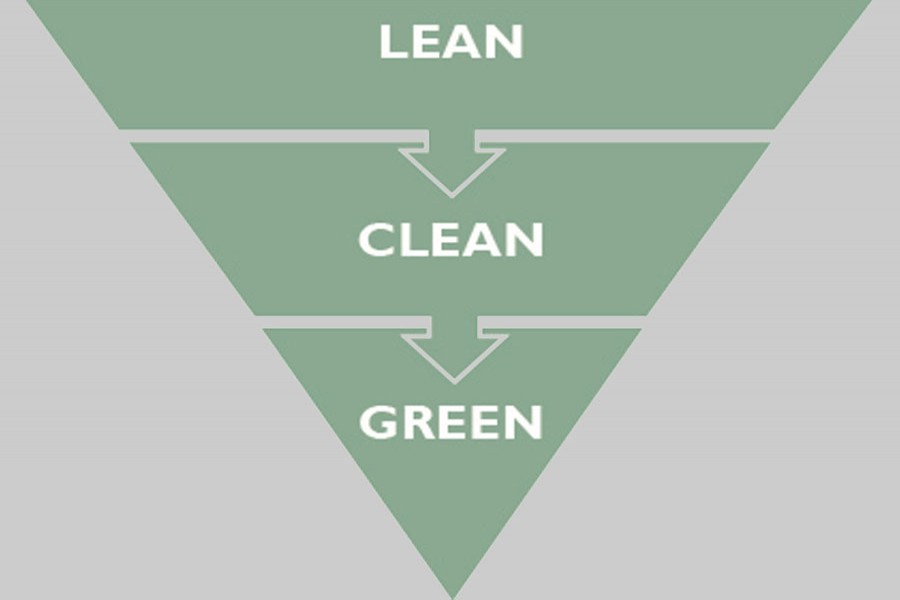Key to economic progress only a generation ago was the 'lean, mean' approach. Accented by the neo-liberal policy-making framework, it made profit-making the uncompromised goal, to be achieved by workers programmed for nothing else but profits. In trim and efficient teams, their purpose was to sell, sell, and sell. Marketing blossomed, investment broke barriers, management profited, and businesses thrived.
Little was said of the costs, but they piled up anyway. From lubricating political wheels to investing for the sake of investing, wherever, whenever, and in defiance of labour laws or work standards. We see the leftovers today in how Chinese grease culminated in a string of embarrassing ports-of-call along the Belt-Road Initiative trajectory and other loaned projects, from Gwador in Pakistan to Hambantota in Sri Lanka, to the Dhaka-Sylhet highway in Bangladesh. We see them also in coal-fired power projects, as in our projected Rampal plant.
Fortunately that greed cannot always be a one-way street. Based not just on the damages done environmentally that has made 'climate change' a permanent fixture in routine conversation, but also the technologies attainable by humans exploring artificial intelligence (AI), we may be able to speak of a 'lean, clean and green' future, much like the European Stability Mechanism's Secretary General, Kalin Anev Janse, does so pragmatically (see https// www.weforum. org/agenda/2017/11/ these-are-the-top-5-challenges-for-international-organizations?utm_content=buffer1a46f&utm_medium=soc...).
Indeed, by identifying six arenas demanding environmental attention at the 2018 World Economic Forum (WEF), PricewaterhouseCoopers (PwC) and conservation Partner Celine Herweijer goes one major step farther by spelling out eight "game-changing AI applications" capable of remedying part of the voluptuous footprints of a previous generation (https://www. weforum. org/agenda/2018/01/8-ways-ai-can-help-save-this-planet/?utm_content=buffercf3b2&utm_medium=socialism&utm_source=facebook...).
Those are not unheard of arenas. Climate change, biodiversity and conservation, healthy oceans, water scarcity, clean air, and weather and relief disaster have been in the news every year for many recent years to raise eyebrows. We in Bangladesh face their seamy side constantly: going backwards on that list, from the Rohingya resettlement and the worst flood in 30 years within the past eight months, to fixing face-masks against Dhaka pollutants, piping drinking water to a large proportion of our population, combating 'dead zone' sections of the Indian Ocean, ruling against forest-chopping along the Jessore-Benapole highway, in part to preserve magnificent trees, in part to prevent winter bird-migrant visitors from abandoning our pastures, and urgently holding on to our coastal embankments against rising oceans, all have taxed us, and all will continue to tax us forever.
Herweijer's applications could have been written for Bangladesh, they are so pinpointed to our experiences. Two address fuel/energy: one proposes autonomous vehicles (AVs) running on electricity, the other systematising renewable energy, whether solar or hydro-electric. Whereas the former would relieve Dhaka from its contamination and car-owners (as well as bus-owners) from the monumental burden of expensive petroleum, the latter could recharge our factories, many of which complain about power-shortages, not to mention rural inhabitants who still struggle to savour Michael Faraday's and Thomas Edison's key invention.
Almost all the other applications introduce or upgrade our AI stock, dealing with improvements in farming, better food production storage and consumption, weather forecasting utilising the AI-driven new knowledge from 'climate informatics', more efficient disaster management, making cities more 'intelligent' and 'livable' by drawing upon augment and virtual reality (AR and VR) to create a self-sustaining 'urban dashboard', much like the planet's 'digital geospatial dashboard' that safeguards against illegal exploitation of forests, water, and fish; and finally, drawing upon self-learning AI techniques like 'AlphaGo Zero' to coordinate temperatures to facilitate scientific research.
The future is open-ended, but by 2040, Herweijer expects, cities will be able to operate fully automated and connected urban transportation systems. We could be on the outside looking into these developments, or inside, at the steering wheel, depending on our initiatives.
Clearly we would have to cultivate the intellectual infrastructures necessary for operating and managing any of the techniques or contraptions to be deployed. This begins in university-level institutions, which need to be mobilised straightaway, then connected with talent-specific experts elsewhere on the planet, itself requiring the dismantling of barriers that keep outsiders and technologies from freely entering and functioning in the country. Building hubs to coordinate the multiple tasks and disseminate the necessary information, as well as the security needed to permit all of the above, also demand attention.
Since our society is changing dramatically, these would not stand out as irregular. For example, given the steady and significant rural exodus, we still have enough knowledgeable farmers left in the villages who could be trained to deliver the AI promise one by one. Simultaneously utilising the new urban migrants instead of dooming their future to shanty-towns and make-shift futures, they could be directed with the appropriate training to begin making the city 'livable', then 'intelligent' enough to play with the AI techniques for better results, eventually getting 'connected' with other metropolitans across the country.
We might end up not having a choice whether we act now or prefer to abstain. Other countries, both developed and less-developed, will be reaping the AI mill for partial or full-fledged harvests, leaving us to imitate and get second-hand results selectively. Going full-bloodedly into the unknown now at least guarantees we will be better able to grapple with our multiple challenges better than we presently do. At most, we could end up as an AI 'lean, clean and green' entrepreneur globally. Would that not be a more fitting sequel to Rabindranath Tagore's 'Golden Bengal' than the very creation of Bangladesh?
Dr. Imtiaz A. Hussain is Professor & Head of the newly-built Department of Global Studies & Governance at Independent University, Bangladesh.


